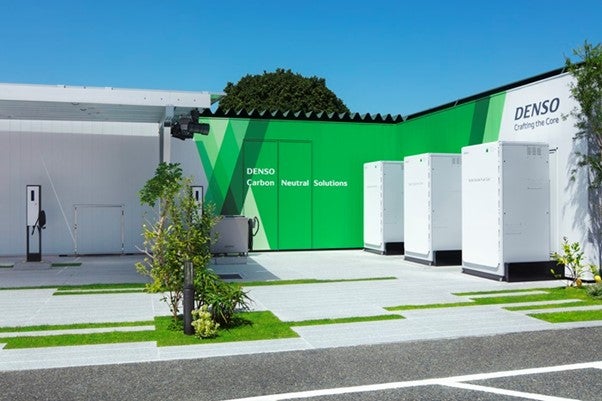
Denso has recently started a pilot programme testing a new energy management system to minimise CO2 emissions at its Nishio plant in Japan.
With the support of the New Energy and Industrial Technology Development Organisation (NEDO), the supplier is exploring “the development of technologies for realising a hydrogen society”.

Discover B2B Marketing That Performs
Combine business intelligence and editorial excellence to reach engaged professionals across 36 leading media platforms.
In its new system, Denso has developed a Solid Oxide Fuel Cell (SOFC) which used in combination with a storage battery will supply electricity to the plant.
SOFCs produce electricity by using hydrogen as fuel and therefore only emit water.
An advantage is that they generate a continuous and reliable flow of electricity, unaffected by changes in weather conditions.
Denso plans to integrate a Vehicle-to-Grid (V2G) system into the project. This will allow an electric vehicle to serve as a storage battery, creating a connection and sharing power with electric utility companies.
Denso will supplement this capability with energy generated by solar panels.
The SOFC “incorporates thermal management technology and fuel recycling technology, which has been cultivated through automotive components, aiming for the world’s highest level power generation efficiency of 65%”.
The system trial aims to improve energy efficiency by managing battery charging and discharging, as well as controlling SOFC power generation based on the factory’s energy requirements. The system has been installed within the plant’s so called Pocket Plant.






